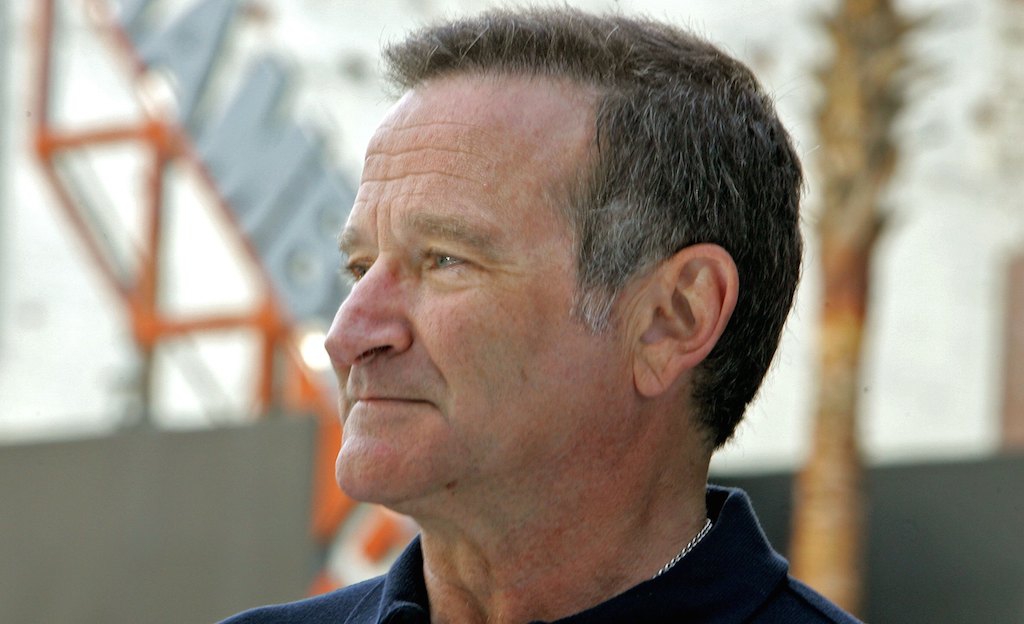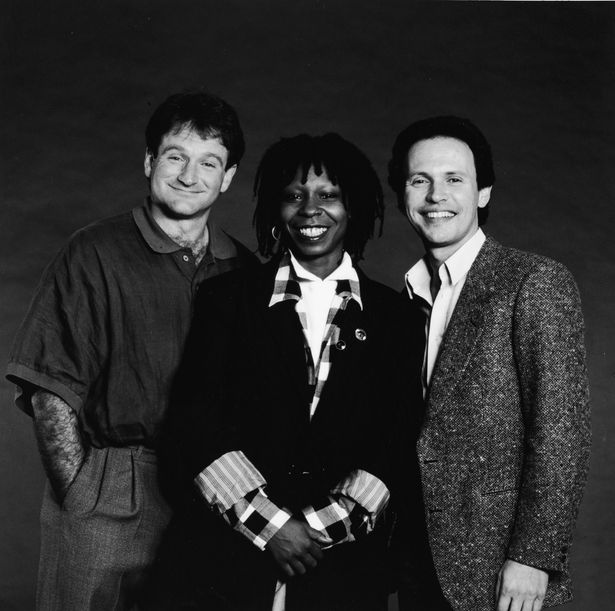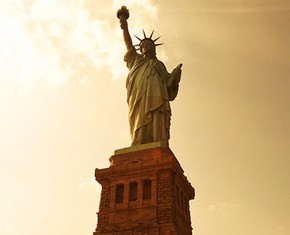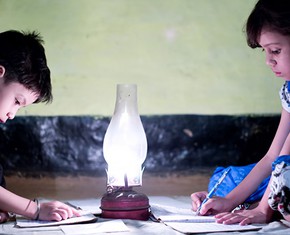The views expressed in our content reflect individual perspectives and do not represent the authoritative views of the Baha'i Faith.
…the trials which beset our every step, all our sorrow, pain, shame and grief, are born in the world of matter; whereas the spiritual Kingdom never causes sadness. – Abdu’l-Baha, Paris Talks, p. 109.
Be not in despair, but rather smile by the mercy of thy Lord; and be not sorrowful when meeting with worldly difficulties and depressions, for they pass away — and thine shall be immortality during ages and centuries, times and cycles. – Abdu’l-Baha, Tablets of Abdu’l-Baha v1, p. 177.
It was just supposed to be a simple press conference.
Comic Relief had barely gotten off the ground—I think we’d done two shows by then, out of the eight we would eventually do—and American comedy was in the midst of its renaissance, which meant we had raised a truckload of money. We needed to have a press conference in L.A., to announce how well the show had done. Robin and Billy and Whoopi all wanted to do it, so I invited the mayor, too.
We found a homeless shelter in the mid-Wilshire area that agreed to host it. When we got there, a few of the residents objected—they didn’t want to be on camera—so we moved it outside in the back yard and set up a folding table. Mayor Bradley arrived with his entourage. Billy drove up by himself, and told me Whoopi couldn’t come, something about a screen test. Robin got there a minute later.
“This everybody?” he asked.
I told him yes, that Whoopi had to cancel.
“That ho!” he said, a fake mask of anger on his face.
When Robin said something deadpan like that, everyone knew he meant the exact opposite. The five or six people who stood around us laughed uproariously. Everyone knew he loved Whoopi like a sister. They had both once been homeless themselves, Whoopi on the streets of Philadelphia with her daughter, Robin living in his car in Hollywood. This off-kilter, rapid-fire, free-associating style of comedy usually hid Robin’s real emotions—maybe that was the point—and he often said the exact opposite of what he felt.
So, on with the show. I was there representing the Board of Directors of Homeless Health Care Los Angeles; Robin and Billy were stand-up comedians and actors on the rise; and Tom Bradley, the beloved five-time Mayor of Los Angeles, told a few jokes and turned out to be incredibly funny. Who knew?
The main sight gag, which Billy and Robin had obviously set up beforehand without telling anyone, all revolved around the jumbo, hard-backed, presentation-style check they were supposed to officially present to Mayor Tom and I.
Robin said to the assembled TV cameras and radio reporters “You know, we did Comic Relief for homeless people–but instead David’s going to spend it all on a new Jaguar!” Then he and Billy whacked me over the head with the big check, and started chasing Mayor Tom around the table, a demented Marx Brothers routine. Hilarity ensued. Later some of the news footage had a shaky quality to it, as if another earthquake had struck, but that was just the cameramen cracking up.
Then a few weeks later I get on a plane at LAX. Robin sees me walk on, pats the seat beside him, says “Sit here.”
We didn’t talk much on the flight out. I knew Robin a little at that point, and knew his reputation as a loner and a fairly depressive guy, so I didn’t press it. I’d learned, just from being around comedians for the past few years, that most of them aren’t fundamentally happy souls.
But when we got to Chicago, the airline had lost our bags. We sat in the lost-luggage room for a few hours, waiting and reading. About an hour in, Robin started to talk a little. We chatted about relationships, kids, how much he despised the way the United States treated its poor people. We talked at length about my time working in a mental institution, and Robin asked me very seriously about the patients there who had clinical depression.
In conversation, Robin did not joke. It was as if his personality had an on/off switch; and when he joked, it meant he was working. At work he hid his real self behind the humor. Off-stage, in an actual discussion, you could see a melancholy and deeply sad man.
“Tell me–why’d you start that Homeless Health Care thing?” he asked.
“It wasn’t only me, Robin, it was a group of us. We just wanted to help some poor people. Thanks to you three, we’re helping a lot more.”
“Yeah.” He thought about it for a minute, and then asked a question that seemed to mean a lot to him: “Does it make you feel good?”
“Sometimes, sure. But we can’t help everybody. So many people out there who need the help, and not enough resources. That’s the hardest part, turning people away.”
“Oh, man,” he said. “I don’t know how you do that. That’d drive me completely Lenny Bruce.”
Lenny Bruce, the American comedian who broke all the rules and paved the way for Robin and Billy and Whoopi, had died at the peak of his career from a drug overdose.
I looked at him. Robin had quick, intelligent eyes, but at that moment I could tell they weren’t seeing anything outside themselves—they were staring inside, into the void.
“I sure hope not,” I told him. I didn’t want this sweet, intelligent man, who had given so much joy to the world, and who had helped so many people, to feel the pain he so obviously felt.
“You and me both, Sparky!” Robin said, recovering a little and playfully punching me on the arm.

















Comments
Sign in or create an account
Continue with Googleor